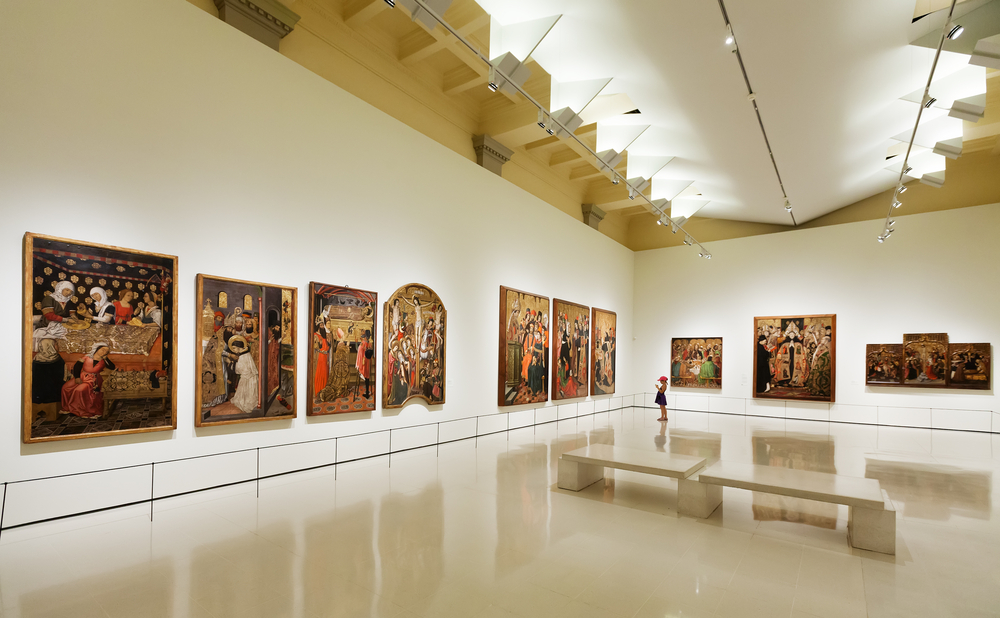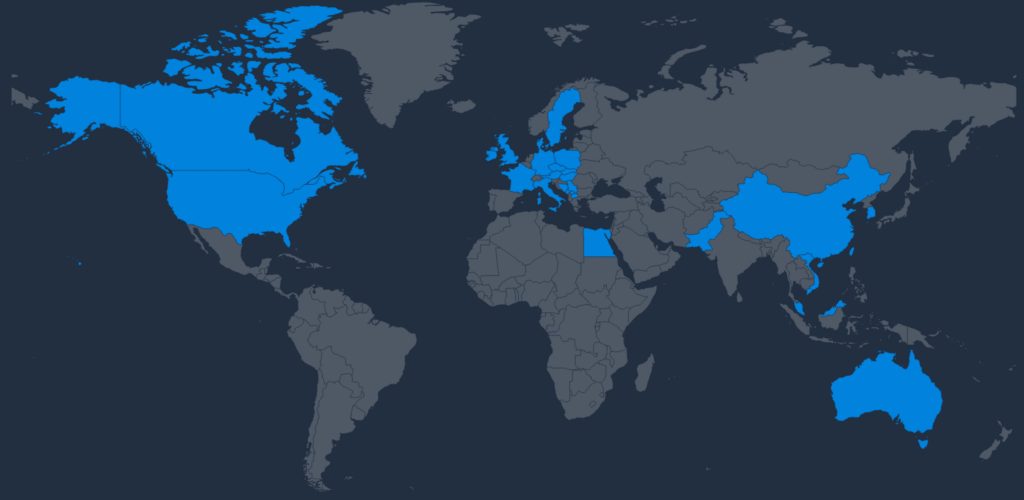Culture and Entertainment

Culture and Entertainment
Authoritarian-induced censorship permeates the art, film, television, professional sports, and video game industries in democratic settings.
Overview
Authoritarians recognize the powerful appeal that entertainment and cultural expression can generate, particularly in the digital era as new multimedia channels and social media formats enable the rapid dissemination of messages and can reshape perceptions among mass audiences. In the culture and entertainment industries—including the arts, film, television, sports, and video games—authoritarian powers have developed ever more sophisticated forms of cultural propaganda. Through a combination of traditional and digital mechanisms, they are also moving beyond censorship and propaganda to manipulate public expression through artistic and cultural mediums at their source.

Authoritarian regimes use multiple methods, including leverage of the private sector, to harness information resources within their borders and amplify their power beyond them. The economic clout of Beijing, in particular, allows it to exploit commercial and financial relationships to insist that foreign cultural institutions and entertainment firms comply with its censorship preferences. While overt censorship mechanisms are easier to observe, these efforts also induce an implicit understanding of taboo issues among the purveyors of culture, potentially resulting in self-censorship on a far wider basis that is more difficult to measure.
Sharp Power Influence
In the realm of high culture, art galleries, museums, theaters, and cultural festival organizers have faced both financial and official government pressure not to host shows and exhibits featuring artists whose work offers an independent perspective that differs from the version of history or events preferred by an authoritarian regime.
The global film industry is becoming an instrument for authoritarian powers to advance their preferred narratives. Filmmakers in Hollywood and beyond are increasingly making decisions about their films—including the content, casting, plot, dialogue, and settings—based on an effort to avoid antagonizing officials who control whether their films gain market access. Both state and private Chinese media and internet firms have bought up studios, talent agencies, and top human resources to further establish their influence abroad.
Authoritarian states also invest resources in international sports, both through sponsorship and broadcasting rights as well as ownership of professional sports teams and hosting major sporting events. This level of financial influence allows authoritarian actors to erase figures and issues they deem undesirable, including teams and individual players whose public remarks run afoul of political sensitivities.
Sharp power also enters the video game space, where foreign companies have catered to authoritarian political priorities by censoring terms and phrases from online gaming forums, withdrawing prize money from players critical of the authorities, and altering game settings and characters.
Autocrats are not agnostic about freedom of expression or association. The organizing principles of these systems require the control of speech and ideas and the elimination of independent groupings or power centers in society.
Democratic Responses
Cultural institutions and entertainment firms serve as important gatekeepers of expression and constitute a critical sector of civil society that can contribute to ensuring the vibrancy and authenticity of cultural expression within open societies.
Norms and Standard Setting
- Leaders in the entertainment industry that have historically championed free speech should make a commitment to resisting censorship from governments around the world that seek to sideline certain topics.
- Authors should resist censorship that alters their arguments or distorts major historical and political events.
- Industry leaders must develop a set of best practices on how to respond to governmental requests to modify and censor content, and those practices should affirm and protect artistic freedom.
Cross-Sector Collaboration
- Journalists can help draw attention to and expose individual examples of censorship of artists, performances, museum exhibits, and other public displays in the cultural and entertainment sphere that might otherwise go unreported. They can do so by creating and publicizing open solicitations for information about instances of censorship that allow whistleblowers to remain anonymous.
Education and Awareness
- The entertainment industry must shine a light on the more generalized and less explicit pressures that censorious governments can bring to bear, specifically the types of pressures that encourage self-censorship and that shrink the space for honest and fearless storytelling.
- Entertainment companies commit to publicly sharing information on all censorship requests received by foreign governments for their films. Such disclosure could take the form of an annual report similar to the disclosures that technology platforms make regarding government take-down requests and their responses.
Culture and Entertainment
The reporting and analysis catalogued in the Portal illustrates how authoritarian powers exert influence beyond their borders in the arts sector and the film, television, sports, and video games industries.

Latest Resources
View All
Source: BNE Intellinews
Publication Date: September 30, 2024
Pro-Russian Politicians Step Up Propaganda Efforts ahead of Moldova’s EU Accession Referendum
Authoritarian Country: Russia
Affected Region: Europe, Moldova
Author: Iulian Ernst
Pro-Russian interference is growing ahead of two votes in Moldova. Maia Sandu’s national security adviser estimated that Russia will spend €100mn to interfere with the presidential elections and EU referendum. This interference includes bribes and replacing media closed for pro-Russian propaganda.
Source: Jerusalem Post
Publication Date: September 29, 2023
Sweden Accuses Iran of Targeted ‘Misinformation’ about Quran Burnings
Authoritarian Country: Iran, Russia
Affected Region: Europe, Sweden
Author: Seth J. Frantzman
Iran and Russia-backed disinformation campaigns have used recent Quran burnings to manipulate sentiments in Sweden. Fearing the effects of these malign efforts, the Swedish government has tasked its Agency for Psychological Defense with countering these campaigns.
Source: U.S. Department of State
Publication Date: September 28, 2023
How the People’s Republic of China Seeks to Reshape the Global Information Environment
Authoritarian Country: China
Affected Region: Global
The PRC has sought to shape the global information landscape in its favor through information manipulation, intimidation, co-opting journalists and enabling digital authoritarianism with cutting-edge technology.
Source: Center for European Policy Analysis
Publication Date: September 26, 2023
Moldova’s President Calls Out Russian Meddling
Authoritarian Country: Russia
Affected Region: Europe, Moldova
Author: Ahshish Kumar Sen
Moldova has sought support of the EU and international community to safeguard its democratic processes against Russian subversion. Russian tactics include election interference, disinformation, and economic blackmail.
![]() Source: Balkan Insight
Source: Balkan Insight
Publication Date: September 20, 2024
Orban’s Propaganda Campaign Against Ukraine Proves Surprisingly Effective
Authoritarian Country: Russia
Affected Region: Europe, Ukraine, Hungary
Author: Edit Inotai
As Hungarian President Victor Orban has drawn closer to Russian President Vladimir Putin, the anti-Ukrainian propaganda in Hungary has become louder. Since 2014, Russia has provoked interethnic conflict between Ukraine and Hungary through disinformation campaigns via online newspapers and posters.
![]() Source: Foreign Policy Research Institute
Source: Foreign Policy Research Institute
Publication Date: September 19, 2023
China’s Belt and Road Initiative: Politics Over Economics
Authoritarian Country: China
Affected Region: Global
Author: Felix K. Chang
China’s Belt and Road Initiative (BRI) has been expected to enter a new phase following the PRC’s Third BRI Forum in October 2023. With over 150 countries participating in the BRI, China’s plans for its signature initiative have appeared increasingly political and less focused on infrastructure development.

